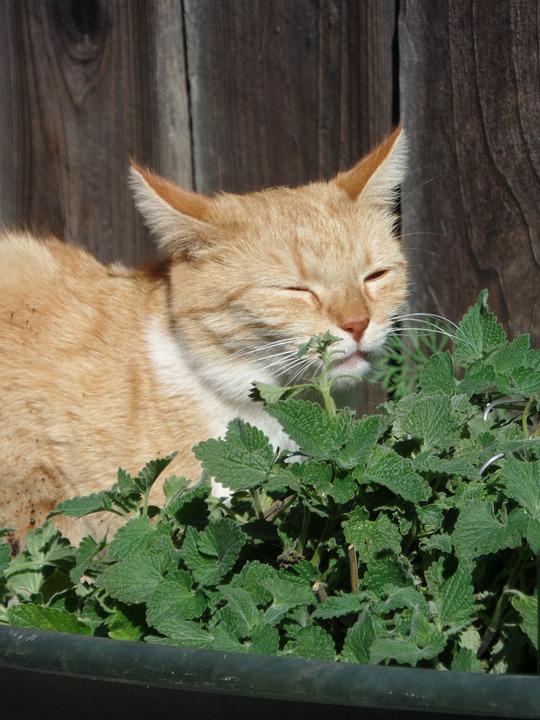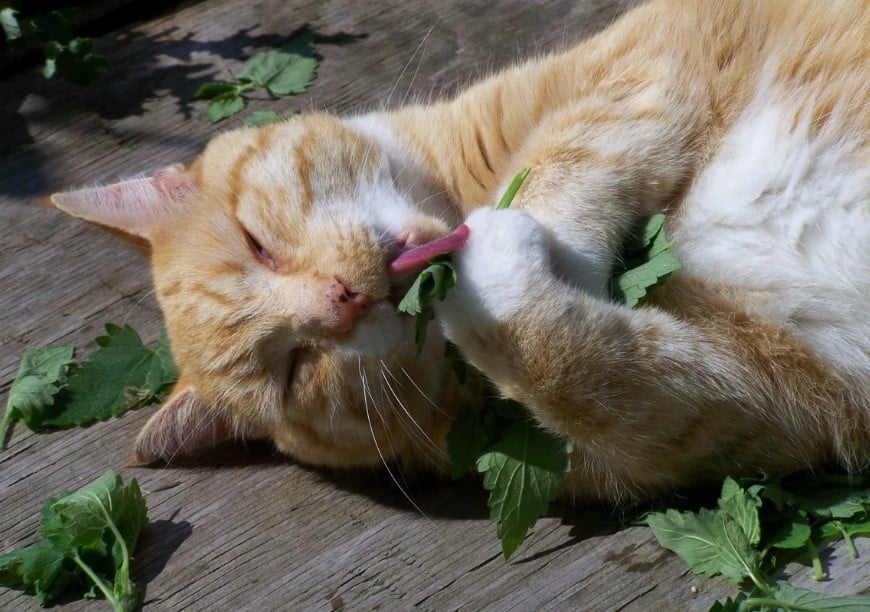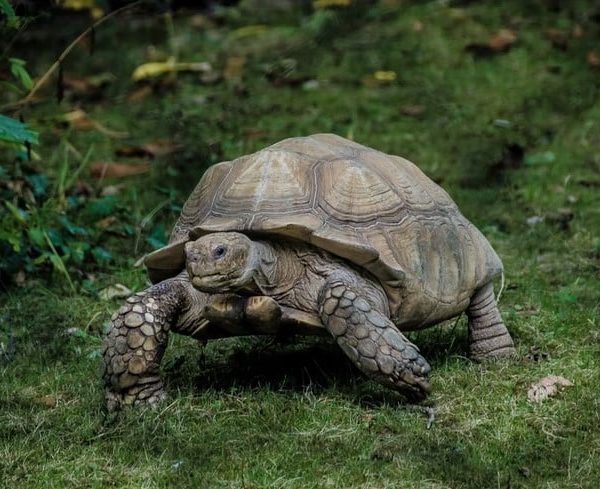Many people know the catnip but a few of them know that it can affect a cat’s mood and behaviors. So, what is exactly the catnip, why do cats go crazy for it, and how does it work the catnip? Read to know.
What is catnip:
Catnip plants or also known scientifically as Nepeta cataria are members of the mint family. The original country of this plant is Europe and was brought to North America during European settlement, now this plant is easy to grow in North America and has feather-like, grayish-green foliage, and can grow up to three feet high.
The active ingredient in catnip is called nepetalactone, which many cats respond to in a variety of different ways. Catnip is considered to be nonaddictive and completely harmless for cats to ingest in small amounts.
What does catnip do to cats?
Many experts think this material (nepetalactone) that’s found in the stems and leaves of the catnip herb, acts as a feline attractant and triggers the response. Cats have a much more sharp sense of smell than humans, that is called the vomeronasal organ (VNO), or Jacobson’s organ located in the soft tissue of the nasal septum on the roof of their mouth.
So, once your cat smells the catnip, it will begin to rub, sniff, chew, and roll in it to help release the oil trapped in the plant’s leaves, which, in turn, activate different areas of the brain that controls emotion and behavior, you will see they act similar to female cats in heat (although male cats can experience the effects too).

Can also include erratic movements, strange howls, and sometimes even aggression, while other cats’ overt signs of affection, relaxation, and happiness. For cats who have previously experienced catnip, it can help them to reduce anxiety and even relieve pain.
How long does it last?
The effects of catnip are a short time and usually last about 10 to 30 minutes. If your cat eats or smells it more, will be the stronger the effect, is not all cats are affected by catnip—this response is inherited and it doesn’t show up immediately.
One studies show that only two-thirds of adult felines are affected by the herb, which means one in three cats do not inherit the allergy to nepetalactone and kittens don’t develop the ability to react to catnip until a few months
What are the benefits?
If your cat lives indoor-only, you will probably see them being under-stimulated, so the catnip can help you because is usually used to encourage cats to play, explore, and train and help them to lower stress levels to be happy.
You can use catnip sprays to a favorite toy or put some of the catnip leaves on your cat’s scratching post to encourage scratching.
Does catnip get cats high?
Catnip is non-toxic to cats, but make sure you don’t give your cat too much can cause vomiting, diarrhea, or dizziness. One time a week is good, the fresh has enough nepetalactone than dried.




Leave a Comment